Fleurs du Mal Magazine


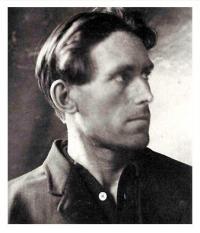
Everybody’s Joining It
Fellow workers, can’t you hear,
There is something in the air.
Everywhere you walk everybody talks
‘Bout the I. W. W.
They have got a way to strike
That the master doesn’t like —
Everybody sticks,
That’s the only trick,
Al are joining now.
CHORUS:
Everybody’s joining it, joining what? Joining it!
Everybody’s joining it, joining what? Joining it!
One Big Union, that’s the workers’ choice,
One Big Union, that’s the only choice,
One Big Union, that’s the only noise,
One Big Union, shout with all your voice;
Make a noise, make a noise, make a noise, boys,
Everybody’s joining it, joining what? Joining it!
Everybody’s joining it, joining what? Joining it!
Joining in this union grand,
Boys and girls in every land;
All the workers hand in hand —
Everybody’s joining it now.
The’ Boss is feeling mighty blue,
He don’t know just what to do.
We have got his goat, got him by the throat,
Soon he’ll work or go starving.
Join I. W. W.
Don’t let bosses trouble you,
Come and join with us —
Everybody does —
You’ve got nothing to lose.
Will the One Big Union Grow?
Mister Bonehead wants to know.
Well! What do you think, of that funny gink,
Asking such foolish questions?
Will it grow? Well! Look a here,
Brand new locals everywhere,
Better take a hunch,
Join the fighting bunch,
Fight for Freedom and Right.
Joe Hill
(1879-1915)
Everybody’s Joining It
Song
• fleursdumal.nl magazine
More in: # Music Archive, Archive G-H, Joe Hill, Workers of the World
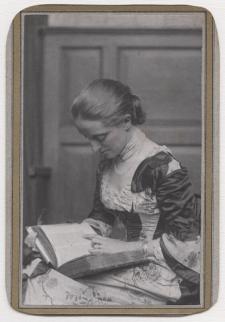
Ah! Would I Could Forget
The whispering water rocks the reeds,
And, murmuring softly, laps the weeds;
And nurses there the falsest bloom
That ever wrought a lover’s doom.
Forget me not! Forget me not!
Ah! would I could forget!
But, crying still, “Forget me not,”
Her image haunts me yet.
We wander’d by the river’s brim,
The day grew dusk, the pathway dim;
Her eyes like stars dispell’d the gloom,
Her gleaming fingers pluck’d the bloom.
Forget me not! Forget me not!
Ah! would I could forget!
But, crying still, “Forget me not,”
Her image haunts me yet.
The pale moon lit her paler face,
And coldly watch’d our last embrace,
And chill’d her tresses’ sunny hue,
And stole that flower’s turquoise blue.
Forget me not! Forget me not!
Ah! would I could forget!
But, crying still, “Forget me not,”
Her image haunts me yet.
The fateful flower droop’d to death,
The fair, false maid forswore her faith;
But I obey a broken vow,
And keep those wither’d blossoms now!
Forget me not! Forget me not!
Ah! would I could forget!
But, crying still, “Forget me not,”
Her image haunts me yet.
Sweet lips that pray’d–“Forget me not!”
Sweet eyes that will not be forgot!
Recall your prayer, forego your power,
Which binds me by the fatal flower.
Forget me not! Forget me not!
Ah! would I could forget!
But, crying still, “Forget me not,”
Her image haunts me yet.
Juliana Horatia Ewing
(1841–1885)
Poem
Ah! Would I Could Forget
• fleursdumal.nl magazine
More in: Archive E-F, Archive E-F, Juliana Horatia Ewing, Tales of Mystery & Imagination
Paul Celan, der meistgedeutete deutschsprachige Dichter nach 1945, ist auch der Autor eines eminenten Briefwerks.
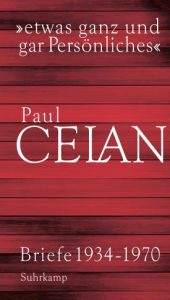 Mit dieser Ausgabe wird es nun erstmals als eigenes Werk sichtbar: in 691 Briefen, davon 330 bisher unpubliziert, an 252 Adressaten. Wer sind die Adressaten? Es sind die Mitglieder der Familie, geliebte Frauen, befreundete Autoren, sehr junge und begeisterte Leser, Übersetzerkollegen, französische Philosophen ebenso wie deutsche Germanisten und die Mitarbeiter vieler Verlage. Aus alledem entsteht in chronologischer Folge über vier Jahrzehnte ein Leben aus Briefen.
Mit dieser Ausgabe wird es nun erstmals als eigenes Werk sichtbar: in 691 Briefen, davon 330 bisher unpubliziert, an 252 Adressaten. Wer sind die Adressaten? Es sind die Mitglieder der Familie, geliebte Frauen, befreundete Autoren, sehr junge und begeisterte Leser, Übersetzerkollegen, französische Philosophen ebenso wie deutsche Germanisten und die Mitarbeiter vieler Verlage. Aus alledem entsteht in chronologischer Folge über vier Jahrzehnte ein Leben aus Briefen.
In ihnen zeigt sich Celan als herausragender Korrespondenzpartner mit einer enormen stilistischen Bandbreite, ausgeprägt in seiner Fähigkeit, auch auf Unbekannte einzugehen. Die Briefe offenbaren eine Vielzahl bisher verborgener biografischer Fakten, ermöglichen eine Präzisierung seiner Poetologie und zeigen ihn zugleich als Menschen in seinem ganz gewöhnlichen Alltag.
Das Jahr 2020 steht ganz im Zeichen von Paul Celan: Am 20. April jährte sich sein Todestag zum fünfzigsten Mal, und am 23. November 2020 wäre einer der wichtigsten deutschsprachigen Dichter nach 1945 einhundert Jahre alt geworden.
Paul Celan wurde als Paul Antschel am 23. November 1920 als einziger Sohn deutschsprachiger, jüdischer Eltern im damals rumänischen Czernowitz geboren. Nach dem Abitur 1938 begann Celan ein Medizinstudium in Frankreich, kehrte jedoch ein Jahr später nach Rumänien zurück, um dort Romanistik zu studieren. 1942 wurden Paul Celans Eltern deportiert. Im selben Herbst starb sein Vater in einem Lager an Typhus, seine Mutter wurde erschossen. Von 1942 bis 1944 musste Celan in verschiedenen rumänischen Arbeitslagern Zwangsarbeit leisten.
Von 1945 bis 1947 arbeitete er als Lektor und Übersetzer in Bukarest, wo auch erste Gedichte von Celan erschienen. Im Juli 1948 zog er von Wien aus nach Paris, wo der Dichter bis zu seinem Tod lebte. Dort lernte Celan 1951 die Künstlerin Gisèle de Lestrange kennen, die er ein Jahr später heiratete. Ihr gemeinsamer Sohn Eric kam 1955 zur Welt. Im Frühjahr 1970 nahm sich Celan in der Seine das Leben. (Suhrkamp Verlag)
“Dieses aus- und eindrucksvolle Mosaik ist die große Leistung der Herausgeberin Barbara Wiedemann, die schon so viele Publikationen zu Paul Celan verantwortet hat.” – Martin Oehlen, Frankfurter Rundschau
Paul Celan
“Etwas ganz und gar Persönliches”
Briefe 1934-1970
Herausgegeben und kommentiert von Barbara Wiedemann
Deutschsprachig
Leinen
Literatur
Suhrkamp Verlag
1286 Seiten
78,00 €
Erschienen: 14.12.2019
ISBN: 978-3-518-42888-7
# new books
Paul Celan
Briefe 1934-1970
• fleursdumal.nl magazine
More in: - Book News, - Bookstores, Archive C-D, Archive C-D, Bachmann, Ingeborg, Celan, Paul, Paul Celan

Gettysburg
O Pride of the days in prime of the months
Now trebled in great renown,
When before the ark of our holy cause
Fell Dagon down-
Dagon foredoomed, who, armed and targed,
Never his impious heart enlarged
Beyond that hour; God walled his power,
And there the last invader charged.
He charged, and in that charge condensed
His all of hate and all of fire;
He sought to blast us in his scorn,
And wither us in his ire.
Before him went the shriek of shells-
Aerial screamings, taunts and yells;
Then the three waves in flashed advance
Surged, but were met, and back they set:
Pride was repelled by sterner pride,
And Right is a strong-hold yet.
Before our lines it seemed a beach
Which wild September gales have strown
With havoc on wreck, and dashed therewith
Pale crews unknown-
Men, arms, and steeds. The evening sun
Died on the face of each lifeless one,
And died along the winding marge of fight
And searching-parties lone.
Sloped on the hill the mounds were green,
Our centre held that place of graves,
And some still hold it in their swoon,
And over these a glory waves.
The warrior-monument, crashed in fight,
Shall soar transfigured in loftier light,
A meaning ampler bear;
Soldier and priest with hymn and prayer
Have laid the stone, and every bone
Shall rest in honor there.
Herman Melville
(1819 – 1891)
Gettysburg
• fleursdumal.nl magazine
More in: Archive M-N, Archive M-N, Herman Melville, WAR & PEACE
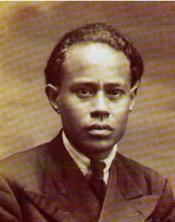
Lire
Ne faites pas de bruit, ne parlez pas:
vont explorer une forêt les yeux, le cœur,
l’esprit, les songes…
Forêt secrète bien que palpable:
forêt.
Forêt bruissant de silence,
Forêt où s’est évadé l’oiseau à prendre au piège,
l’oiseau à prendre au piège qu’on fera chanter
ou qu’on fera pleurer.
À qui l’on fera chanter, à qui l’on fera pleurer
le lieu de son éclosion.
Forêt. Oiseau.
Forêt secrète, oiseau caché
dans vos mains.
Jean-Joseph Rabearivelo
(1901? 1903? – 1937)
Lire (poème)
• fleursdumal.nl magazine
More in: Archive Q-R, Archive Q-R, Jean-Joseph Rabearivelo
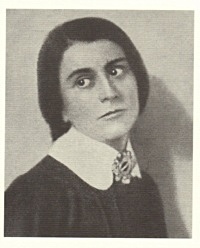
George Grosz
Manchmal spielen bunte Tränen
In seinen äschernen Augen.
Aber immer begegnen ihm Totenwagen,
Die verscheuchen seine Libellen.
Er ist aberglaubig–
–Ward unter einem großen Stern geboren–
Seine Schrift regnet,
Seine Zeichnung: Trüber Buchstabe.
Wie lange im Fluß gelegen,
Blähen seine Menschen sich auf.
Mysteriöse Verlorene mit Quappenmmäulern
Und verfaulten Seelen.
Fünf träumende Totenfahrer
Sind seine silbernen Finger.
Aber nirgendwo ein Licht im verirrten Märchen
Und doch ist er ein Kind,
Der Held aus dem Lederstrumpf
Mit dem Indianerstamm auf Duzfuß.
Sonst haßt er alle Menschen,
Sie bringen ihm Unglück.
Aber Georg Grosz liebt sein Mißgeschick
Wie einen anhänglichen Feind.
Und seine Traurigkeit ist dionysisch,
Schwarzer Champagner seine Klage.
Er ist ein Meer mit verhängtem Mond,
Sein Gott ist nur scheintot.
Else Lasker-Schüler
(1869 – 1945)
George Grosz
aus: Die Kuppel. Paul Cassirer, Berlin 1920
• fleursdumal.nl magazine
More in: Archive K-L, Archive K-L, Expressionism, Expressionisme, FDM in Berlin, Lasker-Schüler, Else
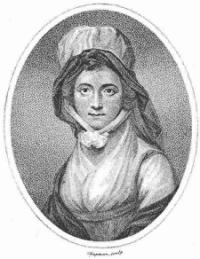
Sonnet L
In every breast Affection fires, there dwells
A secret consciousness to what degree
They are themselves belov’d. – We hourly see
Th’ involuntary proof, that either quells,
Or ought to quell false hopes, – or sets us free
From pain’d distrust; – but, O, the misery!
Weak Self-Delusion timidly repels
The lights obtrusive – shrinks from all that tells
Unwelcome truths, and vainly seeks repose
For startled Fondness, in the opiate balm,
Of kind profession, tho’, perchance, it flows
To hush Complaint – O! in Belief’s clear calm,
Or ‘mid the lurid clouds of Doubt, we find
LOVE rise the Sun, or Comet of the Mind.
Anna Seward
(1742-1809)
Sonnet L.
(In every breast Affection fires)
• fleursdumal.nl magazine
More in: #Editors Choice Archiv, Archive S-T, Archive S-T
Most people outside Italy know Pier Paolo Pasolini for his films, many of which began as literary works—Arabian Nights, The Gospel According to Matthew, The Decameron, and The Canterbury Tales among them.
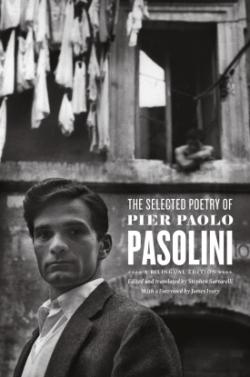 What most people are not aware of is that he was primarily a poet, publishing nineteen books of poems during his lifetime, as well as a visual artist, novelist, playwright, and journalist. Half a dozen of these books have been excerpted and published in English over the years, but even if one were to read all of those, the wide range of poetic styles and subjects that occupied Pasolini during his lifetime would still elude the English-language reader.
What most people are not aware of is that he was primarily a poet, publishing nineteen books of poems during his lifetime, as well as a visual artist, novelist, playwright, and journalist. Half a dozen of these books have been excerpted and published in English over the years, but even if one were to read all of those, the wide range of poetic styles and subjects that occupied Pasolini during his lifetime would still elude the English-language reader.
For the first time, Anglophones will now be able to discover the many facets of this singular poet. Avoiding the tactics of the slim, idiosyncratic, and aesthetically or politically motivated volumes currently available in English, Stephen Sartarelli has chosen poems from every period of Pasolini’s poetic oeuvre. In doing so, he gives English-language readers a more complete picture of the poet, whose verse ranged from short lyrics to longer poems and extended sequences, and whose themes ran not only to the moral, spiritual, and social spheres but also to the aesthetic and sexual, for which he is most known in the United States today. This volume shows how central poetry was to Pasolini, no matter what else he was doing in his creative life, and how poetry informed all of his work from the visual arts to his political essays to his films. Pier Paolo Pasolini was “a poet of the cinema,” as James Ivory says in the book’s foreword, who “left a trove of words on paper that can live on as the fast-deteriorating images he created on celluloid cannot.”
Pier Paolo Pasolini (1922–75) was an Italian film director, writer, and intellectual. This generous selection of poems will be welcomed by poetry lovers and film buffs alike and will be an event in American letters.
The Selected Poetry of Pier Paolo Pasolini
A Bilingual Edition
Edited and Translated by Stephen Sartarelli
With a Foreword by James Ivory
Format Paperback
512 pages
Dimensions 152.4 x 226.06 x 33.02mm
Publisher The University of Chicago Press
Language English
Edition Bilingual edition
ISBN10 022632544X
ISBN13 9780226325446
2015
Paper $25.00
Susan Stewart | The Nation: “An accused blasphemer deeply devoted to Franciscan Catholicism, a Gramscian communist permanently expelled from the party, an avowed homosexual dedicated to the consensual sexual freedom of everyone, a champion of the local on a global scale, a neorealist of the imagination, and a radically innovative poet alienated from the existing practices of the avant-garde: Pasolini is not so much a figure of contradictions as he is a force against the incoherence hiding in every hypocrisy.”
• fleursdumal.nl magazine
More in: - Book News, Archive O-P, Archive O-P, AUDIO, CINEMA, RADIO & TV, Pier Paolo Pasolini
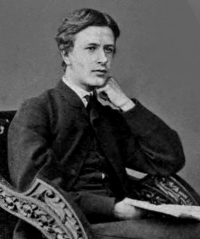
Enough
When all my words were said,
When all my songs were sung,
I thought to pass among
The unforgotten dead,
A Queen of ruth to reign
With her, who gathereth tears
From all the lands and years,
The Lesbian maid of pain;
That lovers, when they wove
The double myrtle-wreath,
Should sigh with mingled breath
Beneath the wings of Love:
‘How piteous were her wrongs,
Her words were falling dew,
All pleasant verse she knew,
But not the Song of songs.’
Yet now, O Love, that you
Have kissed my forehead, I
Have sung indeed, can die,
And be forgotten too.
Digby Mackworth Dolben
(1848 – 1867)
Enough
• fleursdumal.nl magazine
More in: Archive C-D, Archive C-D, Digby Mackworth Dolben

Elégie
L’allée est ténébreuse, et le ciel est mystique;
L’Aphrodita de marbre étend son beau corps nu,
Le gazon est humide et luisant, il a plu…
Sur le gravier s’allonge une ombre fantastique.
L’amour a, par moments, besoin de s’exiler;
Et c’est pourquoi, ce soir, plaisir ou délivrance,
Nous allons à pas lents, baignés dans du silence,
Rechercher la tendresse au jardin isolé.
Douceur de vivre à deux, un soir de lassitude!
O vivre près de toi! bonheur sans lendemain!
Tu m’aimes aujourd’hui – m’aimeras-tu demain?
Et mon soupir a, seul, troublé la solitude.
Cependant on perçoit un long pas, qui nous suit,
Propice à conserver l’illusison divine,
Un pas léger, un as flottant, que l’on devine:
C’est l’ombre de l’amour, dans l’ombre de la nuit.
Emilienne d’Alençon
(1869-1946)
Elégie
• fleursdumal.nl magazine
More in: Archive A-B, Archive A-B, d'Alençon, Émilienne
Does a poet’s heart beat under Donald Trump’s brash exterior? This bestseller rearranges his quotes and tweets into hilarious poetry. It’s a new word order and a perfect stocking filler.
 What if there’s a hidden dimension to Donald Trump; a sensitive, poetic side? Driven by this question, Rob Sears began combing Trump’s words for signs of poetry.
What if there’s a hidden dimension to Donald Trump; a sensitive, poetic side? Driven by this question, Rob Sears began combing Trump’s words for signs of poetry.
What he found was a revelation. By simply taking the 45th President of the United States’ tweets and transcripts, cutting them up and reordering them, Sears unearthed a trove of beautiful verse that was just waiting to be discovered.
This groundbreaking collection gives readers a glimpse of Trump’s innermost thoughts and feelings on everything from the nature of truth, to what he hates about Lord Sugar. And it will reveal a hitherto hidden Donald, who may surprise and delight both students and critics alike.
Now with seventeen all-new poems! As we lurch deeper into the Trump presidency, this timely publication also includes Sears’ scholarly footnotes and introduction, in which he excavates new critical angles and insights into the President’s poetry which the casual reader might initially overlook.
“I’m very highly educated.
I know words,
I know the best words”
– Donald Trump,
Campaign Rally, 30 Dec 2015
Rob Sears is a creative director at McCann Erickson advertising agency, has written comedy and fiction for McSweeney’s and (with his brother) wrote a sitcom for Audible starring Kevin Eldon, Felicity Montagu and Mitch Benn. He lives in Finsbury Park with his wife.
The Beautiful Poetry of Donald Trump
by Robert Sears (Author)
Subtitel: Newly Updated Edition
Including 12 Recently Discovered Poems
Hardcover: 144 pages
Publisher: Canongate Books Ltd; Main edition
August 31, 2017
Language: English
ISBN-10: 9781786892270
ISBN-13: 978-1786892270
ASIN: 1786892278
Product Dimensions: 14.4 x 1.8 x 22 cm
NUR code 754
$12.99
# new books
The Beautiful Poetry
of Donald Trump
• fleursdumal.nl magazine
More in: #Editors Choice Archiv, - Book News, Archive S-T, Archive S-T, Art & Literature News, Invisible poetry, The talk of the town
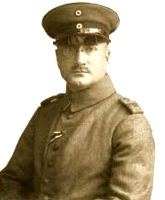
Abendgang
Durch schmiege Nacht
Schweigt unser Schritt dahin
Die Hände bangen blaß um krampfes Grauen
Der Schein sticht scharf in Schatten unser Haupt
In Schatten
Uns!
Hoch flimmt der Stern
Die Pappel hängt herauf
Und
Hebt die Erde nach
Die schlafe Erde armt den nackten Himmel
Du schaust und schauerst
Deine Lippen dünsten
Der Himmel küßt
Und
Uns gebärt der Kuß!
August Stramm
(1874-1915)
Abendgang
• fleursdumal.nl magazine
More in: Archive S-T, Archive S-T, Stramm, August, Stramm, August, WAR & PEACE
Thank you for reading Fleurs du Mal - magazine for art & literature